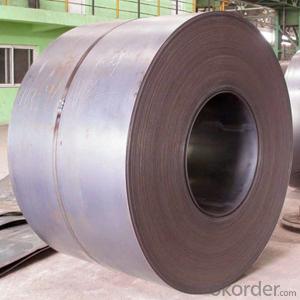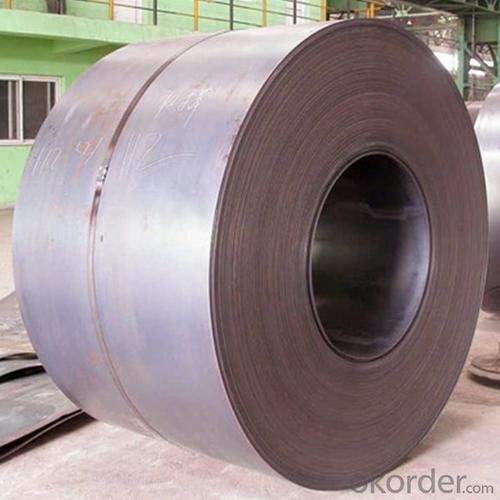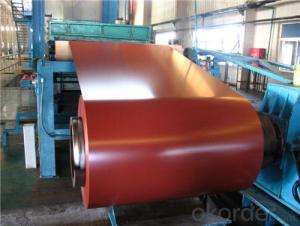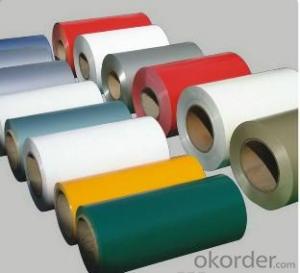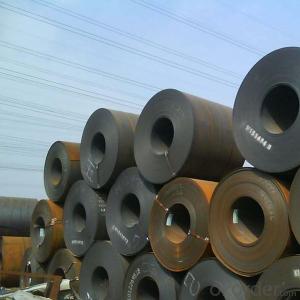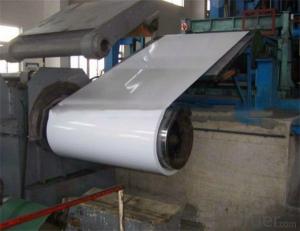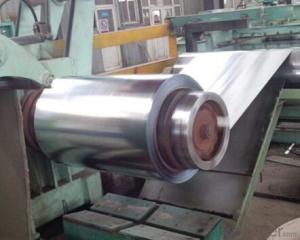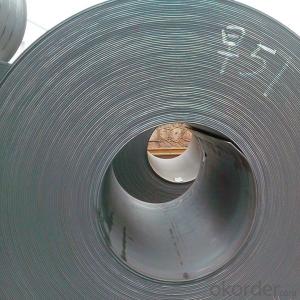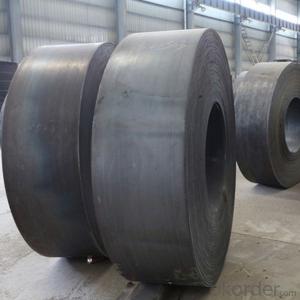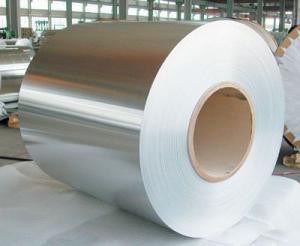Hot Dip Galvanized Rolled Steel Coils Made In China 2016
- Loading Port:
- Tianjin
- Payment Terms:
- TT OR LC
- Min Order Qty:
- 20 m.t.
- Supply Capability:
- 20000 m.t./month
OKorder Service Pledge
OKorder Financial Service
You Might Also Like
Specification
DESCRIPTION FOR SS400 CARBON STEEL SHEET
1.Thickness: 1-200mm
2.Width: 100-3000mm
3.Length: 1000-12000mm
4. Applications :mining machinery, environmental protection, engineering
5. Grade:SS400 A 36 Q195.Q235.Q345.SPCC.SPCH
6.Surface : Hot Rolled Cold Rolled Galvanized Steel
DESCRIPTION FOR CARBON STEEL PLATE
Product | carbon steel plate price per ton |
Place of origin | Tianjin,China mainland |
MOQ | 25 tons |
Thickness | 1mm-200mm |
Width | 1000mm-3000mm |
Length | 1000mm-2000mm |
Application | widely |
Standard | AISI,ASTM,BS,DIN,JIS,GB,etc |
Grade | A572,A573,A633,A678,A709,A710,G3101,G3136,etc |
Tpye | Steel plate |
Surfacing | Coated |
Productive Technology | Hot Rolled & Cold Rolled |
Price | FOB USD 500-900 per ton |
Port | TIANJIN,SHANGHAI |
Payment Terms | L/C,T/T,Western Union,MoneyGram |
Product Ability | 1000 tons per month |
Delivery | 10 days after deposit or according to customers' quantity |
Packing | standard seaworthy export packing or as the request of customers |
PACKING:
1.Big thickness:by bulk vessel
2.Small thickness:packed by steel strips and shipped by container
3.According to the requirements of customers'
TRADE TERMS :FOB, CFR, CIF
DETAILED PICTURES FOR STEEL COILS
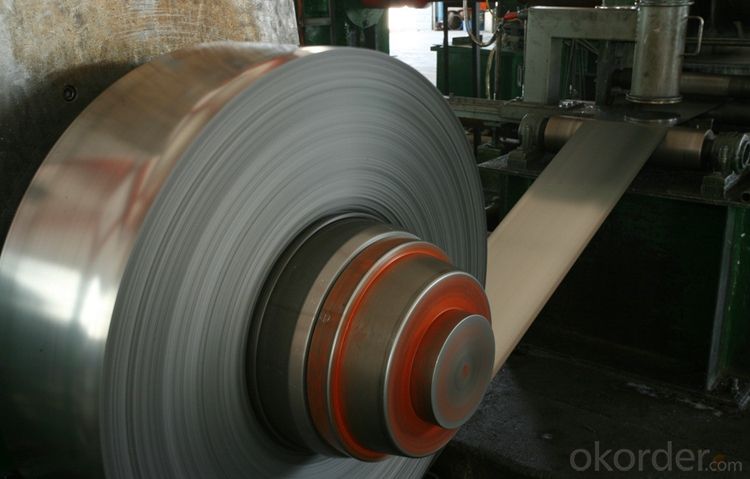
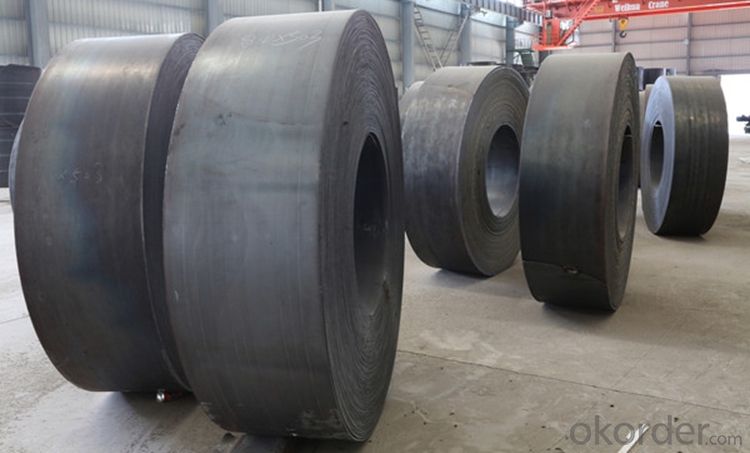
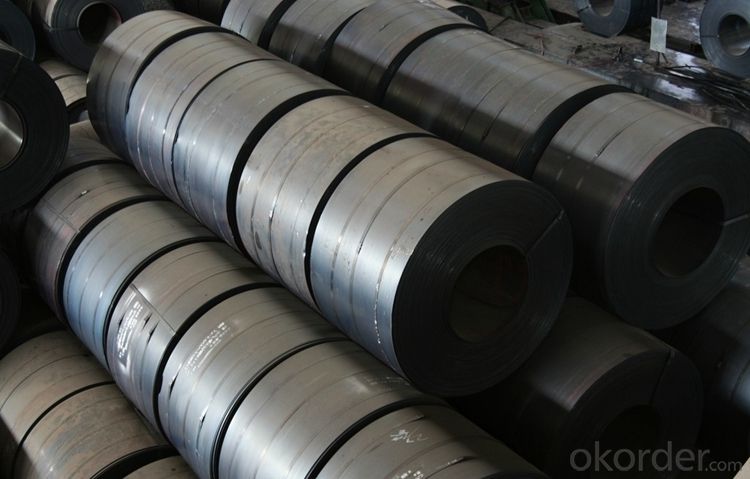
EXPORT MARKET FOR STEEL COILS/SHEETS
Our target market is the international market. Every year we export most of products to countries like India, Pakistan, South Korea, Brazil, Australia, South Africa, Spain, Sri Lanka, Taiwan, Hong Kong, etc.
FAQ:
Q:Do you have OEM service?
A: Yes.Variety of products size,quality and quantity can be customized according to your need.
Q:Could you support free sample?
A:Yes.We can supply FREE samples.But the delivery charges will be covered by our customers.
Q:How about the delivery time?
A:Within 15-30days after receiving the deposit or L/C at sight.
- Q: How are steel coils used in the production of kitchen appliances?
- Steel coils are used in the production of kitchen appliances as they are transformed into various components such as panels, doors, and frames. These coils are typically cut, shaped, and welded into desired forms, providing strength, durability, and a sleek finish to the appliances.
- Q: my sister is making rolls and we have no idea what steel cut oats are. can someone please help with this?
- These are oat grains that are cut with steel sheers intstead of being put the a roller processing system . These are most favored for making true oat porridge . If you really hate preparing breakfast , purchase some of these . Place them in your crockpot over night with milk or water ( your choice ) add what you like raisins cranberries , nut other dried fruits turn on low . Breakfast will be ready and waiting when you get up in the morning just make the coffee or tea . My favorite is to mix in milk , shredded carrot , dried cranberries , b. walnuts and maple syrup . Note : contrary to my predecessor , these have more nutritiional value as they havenot been so heavily processed . Quick and instant oats are just a waste nutritionall speeking . Anything that must be fortified has been over processed .
- Q: Are steel buildings more durable than concrete building?
- Metal buildings are very cost-effective and costs less than a concrete or a wooden building. Steel prices are quite stable as compared to wood or concrete prices which are constantly rising.
- Q: How can the quality of steel coils be ensured?
- The quality of steel coils can be ensured through a combination of careful selection of raw materials, closely monitored manufacturing processes, and rigorous quality control measures. This includes conducting regular inspections and tests at various stages of production to ensure that the steel coils meet the required specifications and standards. Additionally, implementing proper storage and handling procedures, as well as adhering to industry best practices, can help maintain the quality of steel coils throughout their lifecycle.
- Q: How are steel coils used in the production of metal panels?
- Steel coils are used in the production of metal panels as the primary raw material. These coils are fed into a roll forming machine, where they are uncoiled, flattened, and then shaped into the desired panel profiles. This process allows for efficient and continuous production of metal panels with consistent quality and strength.
- Q: How are steel coils used in the production of automotive exhaust systems?
- Steel coils are used in the production of automotive exhaust systems as they are shaped and formed into various components such as pipes, mufflers, and catalytic converters. These coils are cut, bent, and welded to create the necessary shapes and sizes required for efficient exhaust flow and noise reduction. Additionally, the strength and durability of steel make it an ideal material for withstanding high temperatures and harsh conditions that exhaust systems endure.
- Q: What are the different types of surface finishes for steel coils?
- There are several different types of surface finishes for steel coils, each offering its own unique properties and advantages. Some of the most common surface finishes for steel coils include: 1. Hot Rolled: This is the most basic surface finish for steel coils and is achieved by heating the steel and then rolling it to its final shape. It typically has a rough and scale-like appearance, with varying levels of surface imperfections. 2. Cold Rolled: This surface finish is achieved by further processing hot rolled steel coils through a series of cold rolling operations. Cold rolled steel has a smoother and more uniform surface compared to hot rolled steel, with improved dimensional accuracy and better surface quality. 3. Galvanized: Galvanizing is a process in which a protective layer of zinc is applied to the surface of the steel coil. This surface finish provides excellent corrosion resistance, making it ideal for outdoor applications and environments where the steel is exposed to moisture and other corrosive elements. 4. Stainless Steel: Stainless steel coils have a unique surface finish due to the presence of chromium, which forms a thin, invisible layer of oxide on the surface. This surface finish provides excellent corrosion resistance and a visually appealing appearance. 5. Electrolytically Zinc Coated: Also known as electrogalvanized, this surface finish involves the application of a thin layer of zinc to the steel coil through an electroplating process. It provides good corrosion resistance and is commonly used in applications where aesthetics are important. 6. Pre-painted: Pre-painted steel coils have a surface finish that is coated with a layer of paint or other protective coatings. This finish offers both corrosion resistance and aesthetic appeal, allowing for a wide range of colors and finishes to be applied. 7. Aluminized: Aluminized steel coils have a surface finish that is coated with a layer of aluminum-silicon alloy. This finish provides excellent heat resistance and is commonly used in applications where high temperatures are encountered, such as exhaust systems or ovens. Overall, the choice of surface finish for steel coils depends on the specific requirements of the application, including factors such as corrosion resistance, aesthetics, durability, and heat resistance.
- Q: what do you think about producebility of low density steel? for example: can density of 1020 steel (or ony others) be decreased without any loss of other properties.
- 1. A method has been developed for magnetic phase analysis of Fermanal type alloys as-quenched and after aging. 2. The upper limit of alloying to ensure the optimal mechanical properties was determined more precisely for steel 9G28Yu9MVB. For rods aged at 550°C for 16 h the aluminum content should not exceed 9.2% and the carbon content 0.92%. 3. To ensure the optimal mechanical properties of the deformed metal it is necessary to obtain a fine-grained single-phase austenitic structure after quenching. The amount of hardening phase after quenching should not exceed 15–20% (saturation magnetization around 1600 G).
- Q: What is the role of steel coils in the construction industry?
- Steel coils play a crucial role in the construction industry as they are used for various purposes. They are primarily used in the fabrication of structural components such as beams, columns, and trusses, providing strength and stability to buildings. Steel coils are also utilized in the manufacturing of roofing and siding materials, reinforcing bars, and various mechanical components. Their versatility, durability, and resistance to corrosion make them an essential material in construction, ensuring the longevity and safety of structures.
- Q: What are the different methods of coil packaging for steel coils?
- There are several different methods of coil packaging for steel coils, each with its own advantages and suitability for specific applications. Some of the common methods include: 1. Strapping: This method involves using steel or plastic strapping to secure the coil and prevent it from unwinding or shifting during transportation. Strapping can be done manually or with the help of strapping machines, offering a cost-effective and reliable packaging solution. 2. Stretch wrapping: Stretch wrapping involves using a stretch film to tightly wrap the coil. The film is stretched and wrapped around the coil, providing protection against dust, moisture, and damage. This method is suitable for lightweight coils and offers good visibility of the product. 3. Steel banding: Steel banding is a robust and heavy-duty packaging method that involves using steel bands to secure the coil. This method provides high strength and durability, ensuring that the coil remains intact during transportation or storage. 4. Edge protectors: Edge protectors are used in conjunction with other packaging methods to safeguard the edges of the coil. These protectors are typically made of cardboard or plastic and provide additional support to prevent edge damage. 5. Wooden crates: For heavy or fragile steel coils, wooden crates are often used to provide maximum protection. The coils are placed inside the crate and secured with strapping or steel banding. Wooden crates offer excellent strength and stability and can be customized to fit specific coil dimensions. 6. Paper interleaving: This method involves inserting layers of paper or cardboard between individual wraps of the coil to prevent scratching or marking. Paper interleaving is commonly used when the coils are stacked together or when they have a high surface finish that needs to be protected. 7. Automated packaging systems: In larger-scale operations, automated packaging systems can be utilized. These systems are designed to handle and package coils using various methods, such as strapping, stretch wrapping, or steel banding. They offer increased efficiency and productivity while ensuring consistent and secure packaging. The choice of coil packaging method depends on factors such as the size and weight of the coil, transportation requirements, level of protection needed, and cost considerations. It is essential to select the appropriate packaging method to ensure the safe delivery of steel coils to their destination.
Send your message to us
Hot Dip Galvanized Rolled Steel Coils Made In China 2016
- Loading Port:
- Tianjin
- Payment Terms:
- TT OR LC
- Min Order Qty:
- 20 m.t.
- Supply Capability:
- 20000 m.t./month
OKorder Service Pledge
OKorder Financial Service
Similar products
Hot products
Hot Searches
Related keywords
